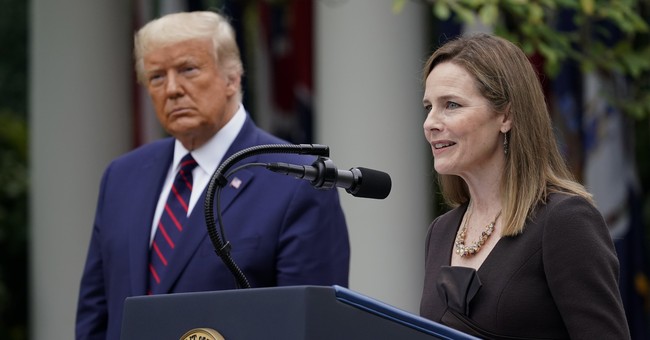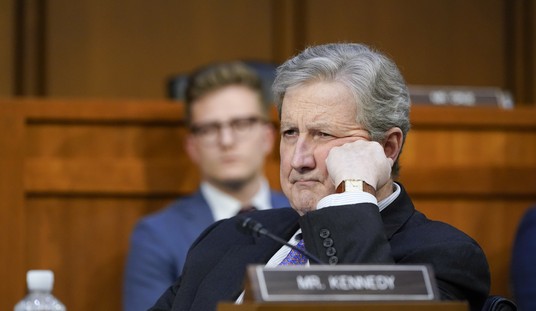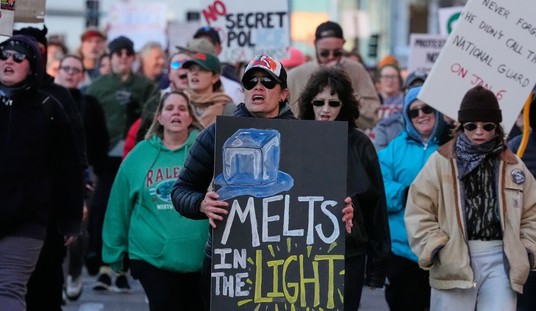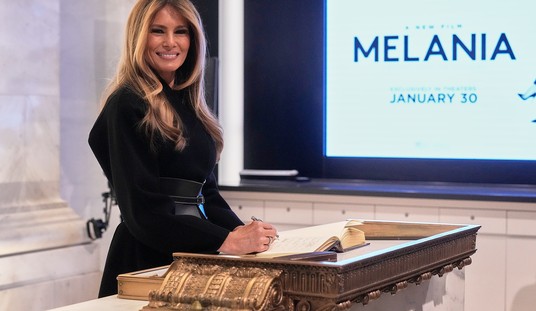
I have been responding on Twitter to a series of attacks on Judge Amy Coney Barrett from “conservatives” who find fault with the fact that she joined a 3-0 decision in the Seventh Circuit case of Illinois Republican Party v. Pritzker, which upheld the denial of a motion for a preliminary injunction that would have kept Illinois from enforcing Gov. Pritzker’s “lock-down” order — supposedly — to the extent it prohibited in-person meetings of GOP party members for planning and campaigning purposes during the 2020 election cycle.
The Seventh Circuit decision was authored by Circuit Court Judge Diane Wood, and she was joined in the decision by Circuit Court Judges Amy Coney Barrett and Amy St. Eve — both nominated to the Court by Pres. Trump.
A brief aside about Judge St. Eve — she was appointed to the District Court in Chicago by President Bush 43. In the 1990s she was a member of Ken Starr’s “Whitewater” investigation team and was part of the prosecution of Jim and Susan McDougal, as well as Gov. Jim Guy Tucker in Arkansas. She served as a District Court judge for SIXTEEN years before Pres. Trump elevated her to the Seventh Circuit. Anyone who suggests she does not understand preliminary injunction matters or procedures is just an IDIOT.
And she joined right along in the 3-0 decision with Judge Barrett affirming the denial of the Illinois GOP’s motion for a preliminary injunction.
So what happened, and why has it generated “anti-Barrett” sentiment from the right against her nomination?
First, the decision is being held up as a comparison to the outcome of Butler v. Wolf, a challenge in Pennsylvania to the lock-down order issued by Penn. Gov. Wolf. In that case, District Court Judge William Stickland — another appointee of Pres. Trump — struck down the Order as being beyond that authorized by the Supreme Court’s decision more than 100 years ago in the case of Jacobsen v. Massachusetts.
Jacobsen v. Massachusetts held that a Governor of Massachusetts, under state law “police powers”, could order the mandatory vaccination of individuals during a public health emergency to slow the spread of a highly contagious disease — in that case the smallpox virus.
Jacobsen has been cited by a variety of courts across the country to justify COVID 19 lockdown orders limiting individual freedoms in a variety of contexts. In his decision, Judge Stickman recognized that Jacobsen was decided decades before later decisions by the Supreme Court reviewing state laws impacting individual liberties. In those later decisions, the Supreme Court fashioned different levels of “deferential” standards of review that take into consideration the justification for the laws and the nature of the impact the laws have on specific constitutional rights of citizens. Judge Stickman used the more recent decisions to determine how much room Jacobsen really allows in justifying orders burdening liberty rights. He ultimately found that the orders went too far based on the justifications and evidence presented by Gov. Wolf.
Judge Stickman did this FOUR MONTHS after the Plaintiffs filed their complaint in Pennsylvania on May 4, 2020. In that four-month period, the parties engaged in extensive discovery with respect to digging out information on the processes followed by Gov. Wolf’s administration in making their various determinations between early March and early June, that were then incorporated into the “Lockdown” Orders being challenged in the case.
Judge Stickman convened a “trial on the merits” with regard to the “Declaratory Relief” claims raised by the Plaintiffs — seeking an order from the Court “declaring” the Orders to be violations of their Fifth and Fourteenth Amendment right to liberty without due process. Evidence by affidavit and live witness testimony was presented, and a lengthy public record was created which went through in great detail the evidence offered by both sides in support of their respective decisions.
Judge Stickman relied on that record and found that the justifications offered by Gov. Wolf were not justified based on the processes employed and the information known to Gov. Wolf to justify the deprivation of liberty imposed on Pennsylvania citizens as set forth in Gov. Wolf’s various “lockdown” orders. The last sentence in the decision is that he will enter “Judgment” in favor of the Plaintiffs. The case is over.
Now, let’s compare that to what happened in Illinois that has some on the right questioning Judge Barrett’s having joined the opinion of Judge Wood not enjoining the Orders of Gov. Pritzker.
The Plaintiffs in the Illinois case — the GOP of Illinois — filed an almost comically brief complaint, asserting only one real claim.
One or more of the lockdown Orders of Gov. Pritzker included a provision exempting “religious services” from the otherwise mandatory 50-person cap on gatherings in the state (governmental and emergency functions were also excluded). Political gatherings, such as those the Illinois GOP wanted to engage in as part of its activities in the 2020 election cycle, remained subject to the 50 person limit.
The argument put forth in the complaint was that the “exemption” provided “religious speech” was equally compelling when applied to “political speech” since both fall under the protection of the First Amendment. They argued that creating an exemption for “religion” gatherings in the Orders, but not for “political” gatherings, made the Order unconstitutional on its face. On the basis of that claim — and that claim alone — they sought a Preliminary Injunction that would have prevented the State of Illinois from enforcing Gov. Pritzker’s order against the GOP of Illinois.
Here is where the difference in the approach to applying Jacobsen becomes of significance. A “facial” challenge to Pritzker’s Order is basically a claim that he lacked the authority to enter such an order under the state “police powers”. The problem with that claim is that the Jacobsen decision says the Governor of a state has such authority — under the right circumstances. Arguing only that Pritzker lacked such authority is a loser until the Supreme Court overrules Jacobsen — which they might eventually do. But until that happens lower courts must respect what Jacobsen says.
In the Seventh Circuit opinion, Judge Wood wrote that at this stage of the pandemic, Jacobsen ruled out any “general challenge” to Gov. Pritzker’s order under the Fourteenth Amendment deprivation of liberty claim.
All that means is that the lower court cannot say, while Jacobsen remains good law, that a Governor lacks the authority under police powers to take action during a time of a public health crisis. The Opinion noted that neither party — not the Illinois GOP nor Illinois — was arguing that point.
The Court went on to then resolve the question of whether, under Supreme Court precedent, it was proper for Pritzker’s Orders to treat “religious” practices and “political” practices differently. The Court had no problem resolving that question AGAINST the Illinois GOP — i.e., that religious accommodations can be made based on “free exercise” grounds where similar accommodations are denied in circumstances regarding free speech.
The Illinois GOP picked a losing argument to make which had nothing to do with Jacobsen.
The difference in Pennsylvania was that the Plaintiffs there challenged the MANNER in which Gov. Wolf exercised his authority under police powers to curtail liberties protected by the Fourteenth Amendment. The Court examined the justifications and evidence which Gov. Wolf claimed supported the liberty restrictions in his Orders, and Judge Stickman found them to be insufficient.
The Illinois GOP did not ask the Court to do that — the Illinois GOP asked for an Injunction before any evidence was gathered on the subject of why/how Gov. Pritzker arrived at his decisions to impose lockdown conditions in the manner in which he did.
The critics I have encountered on Twitter over this issue are lawyers. Their inability — or more likely their unwillingness — to understand and acknowledge the WILDLY DIFFERENT circumstances between the two cases that led to the different outcomes means they are either 1) bad lawyers, or 2) dishonest and have a hidden agenda.
When you come across such online criticism of the nomination of Judge Amy Coney Barrett claiming she’s insufficiently conservative because she joined Judge Wood — along with Judge St. Eve — on the Illinois decision, just do what I did on Twitter and call them a dishonest hack.















Join the conversation as a VIP Member